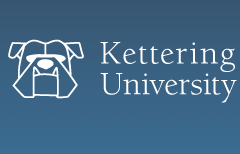Implementation of Problem-based Learning into Engineering Thermodynamics
Document Type
Conference Proceeding
Publication Date
2005
Publication Title
Computer Science
Conference Name
Proceedings of the 2005 ASEE Annual Conference & Exposition
Abstract
Problem-Based Learning (PBL) is an instructional pedagogy founded on the promises of knowledge construction by inquiry. Learning occurs by asking and obtaining answers for questions that are open-ended and challenging. This approach presents many challenges to students but capitalizes on having a real-life problem as the starting point. PBL is known for naturally combining classroom learning with real-life applications. This approach places the burden of knowledge acquisition on the students and utilizes the instructor as a facilitator. It is a student-centered approach emphasizing self-confidence and creativity. This paper presents the implementation of PBL curricular materials (modules) in Engineering Thermodynamics that are supported by technology through simulations and target higher levels of Bloom’s Taxonomy of Learning. Undergraduate students go on to future courses with enhanced thinking skills and greater retention of knowledge. Thermodynamics is restructured as modules presenting practical applications first whereas principles are introduced just-in-time and as encountered. Theoretical information is presented to support the understanding of knowledge as students apply inquiry-based learning. These modules are carefully designed to reflect traditional concepts but made more exciting as students discover the need for the laws and principles. The paper documents steps and challenges in implementation and presents formative and summative assessment data for examining the effectiveness of the PBL approach
Rights Statement
© 2005 by ASME
Recommended Citation
Nasr, Karim J. and Ramadan, Bassem H., "Implementation of Problem-based Learning into Engineering Thermodynamics" (2005). Mechanical Engineering Presentations And Conference Materials. 117.
https://digitalcommons.kettering.edu/mech_eng_conference/117


